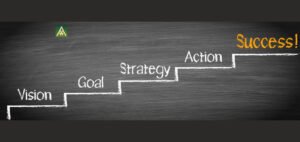With the challenges of the 21st century—marked by intensified technological changes, global interdependence, and porous social expectations—education systems globally stand at a crossroads. The traditional model of education, grounded on pillars of standardization, rote memory, and fixed hierarchies, is increasingly at odds with the world to which it seeks to prepare students. Today’s urgent question is no longer whether education has to change but how quickly and how effectively it can be rearranged in order to survive.
To lead this revolution, education leaders will have to reimagine the system—curriculum, instruction, access, and purpose—with a people-first, future-oriented mindset. It’s not just about integrating technology in the classroom or repairing buildings. It’s about creating a system that prepares learners to thrive in an uncertain world with the skills, virtues, and perseverance it demands.
From Knowledge Transfer to Skills Transformation
The traditional model of education was all about content transfer—where one learned from teachers and books in anticipation of predetermined career pathways. But with the era of AI, automation, and continuous innovation, knowledge becomes obsolete. More critical today is the skill to think, address multi-stage problems, operate across cultures, and continuously adapt.
This change demands a competency-based, rather than content-based, curriculum. It demands the integration of important literacies—such as digital fluency, emotional intelligence, moral reasoning, and entrepreneurial mindsets—into essential subjects. Education needs to be interdisciplinary and inquiry-driven, leading students to connect ideas, pose big questions, and pursue numerous viewpoints.
Learning is no longer about getting children ready for work; it’s getting them ready for life-long learning, unlearning, and relearning.
Empowering Teachers as Agents of Change
Teachers are at the forefront of the learning revolution. But they are no longer simply passive information deliverers—rather, they must be empowered as learning experience designers, mentors, and leaders of innovation. To thrive in the emerging world, teachers need something more than new technology—new mindsets, professional development, and system support.
This includes pedagogy training in digital, learner-centered approaches, and socio-emotional components of instruction. It also includes believing teachers to experiment, collaborate across subjects, and create curriculum from local contexts and learners’ demands.
If teachers are identified and given strength as changemakers, they are the initiators of responsive, meaning-critical, and inclusive education systems.
Student-Centered Learning: Voice, Choice, and Agency
Student-centered is the future of learning. This means a move away from the one-size-fits-all approach to that which values each learner’s interest, strength, and pace. Technology can help usher in this change, with personalized learning paths, adaptive testing, and immediate feedback. But the deeper transformation is to give students greater voice, choice, and agency in learning.
From project-based learning and design thinking to service learning and entrepreneurship labs, student-led learning fosters ownership, curiosity, and self-assurance. It allows students to learn contextually, solve real-world issues in teams, and feel empowered to be actors in society.
By not by rankings or grades, but by the ability to learn deeply, think autonomously, and lead for purpose is success found in this model.
Equity and Inclusion in the Learning Revolution
With learning redesigned for pertinence, equity has to be its essence. The divide, economic inequalities, and structural exclusion still deny billions the right to quality education. Lacking mindful attention, innovation can end up deepening such divides rather than closing them.
Leading the revolution in learning is making systems inclusive—so that every learner, wherever they are, whoever they are, whatever their abilities, can have access to high-quality opportunities. It is about investing in digital infrastructure, advocating for multilingual learning, learning from neurodiverse students, and creating communities to co-design.
An unjust education system is ultimately an obsolescent system. Relevance, in short, isn’t all about being hip—it’s about encountering people where they’re at and taking them somewhere they have to go.
Rethinking Assessment for a New Age
If we are to reform learning, then we must reform measuring it as well. Traditional measures, based on high-stakes testing and standardization, all too often fail to capture the richness of student promise, creativity, and growth.
Contemporary education requires actual, formative, and whole-profession practice of assessment. Portfolios, presentations, peer review, and performance tasks can offer more insight into the progress of students. Assessment also needs to become a learning tool—instead of an evaluation of it—so that reflection, feedback, and ongoing improvement are possible.
This new definition of accomplishment enables education to more accurately describe the realities of life and work in a changing, uncertain world.
The Leadership Imperative
Visionary, risk-taking leadership—at every level—is necessary to drive the learning revolution. Education entrepreneurs, civic leaders, policymakers, and school district leaders will need to work across boundaries to dismantle silos, overcome orthodoxy, and create innovation ecosystems. That involves creating adaptive policy, investing in trials, spreading best practice, and embedding continuous learning into the DNA of education systems.
But that also means hanging on to what is most important: the human mission of education. In a digitizing, automating world, education must be where we build empathy, ethics, imagination, and meaning.
The next generation of leaders who will shape the future of education are those who can shift from tradition to transformation, and lead head and heart.
Conclusion: Building a Future That Learns
The. learning revolution has begun. It is evident through teachers who reimagine classrooms, students who expect relevance, entrepreneurs who build new models, and people who are convinced that learning is the agent of change.
To reimagine education for relevance isn’t a policy issue—on a moral and a generational one. In doing so, we don’t just prepare our students for what’s next—we build a future that’s more equal, more flexible, and more human.
It’s time to be brave. Because the future of learning is the future of all.
Read More: The Human Touch: How Great Educators Lead with Heart and Vision




